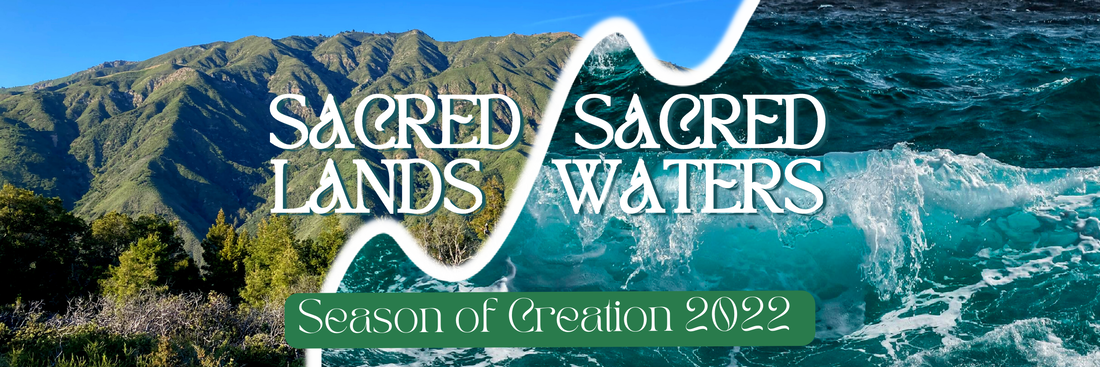|
Reflections on Gonna Trouble the Water
by Dr. Miguel A. de la Torre (Adapted from an interview at the Southern Festival of Books) Water is Sacred There's a sacredness to water that all too often the religious sensibilities of the West simply cannot grasp. In the West, water is a commodity: something to use, to abuse, to make money off of. But in many indigenous cultures, water is a spirit in and of itself. So many Indigenous cultures around the world have a reverence for water, see water itself is a deity. Among the Yoruba people, the rivers are known as a goddess, and it is to her that one gives honor by respecting water. The act, then, of polluting water is not just polluting water, but desecrating and blaspheming against the deity. The spirituality and sacredness of water is present in so many traditions, and we are poorer as Christians for not having that. Water is Life-Giving The second thing that becomes obvious is that there are rights—not just human rights to water, but that the water itself has its own rights, just because it is water. And it's not just the rights of the water and the rights of humans; it's the rights of everything that has life. Animals also have a right to water. I want you to really grasp the idea that water is sacred and life-giving. Scientists tell us that we all originate from water—it is the giver of life. For us to abuse water, as the African indigenous religions have taught me, is to blaspheme against the Creator of all! Water is Power Of course, the third thing that becomes obvious is that water can be abused to the point of abusing other human beings. For example, we see the abuse of African-Americans in Flint, Michigan, the people who have been suffering the most, because of lack of clean water. This year alone, the Western part of the United States is literally on fire, burning down because there is not enough water in the atmosphere. At the same time, on the Eastern side of the country, hurricanes and flooding are overwhelming the coastal areas, and shores are being destroyed and sinking into the ocean. So water—the lack thereof in the West, the abundance thereof in the East—is wreaking havoc on our environment, with our country, with our security as a nation. All the while, there are people who want to continue to insist climate change is a hoax. Water + Theology “Western Christianity's understanding of stewardship and domination as subjugating nature contributes to the present ecological challenges that humanity faces. The belief that the destiny of human beings is to reside with God in heaven and that the earth is but a place of sojourn until we reach our celestial destiny, has encouraged—at the very least—neglect of our environment. The greatest threat to the environment comes from those who hold a view of the end of time (an "eschatological" view) where the destruction of the earth is welcomed for it indicates Jesus's "second coming" when he raptures (takes away from the earth) those destined to be saved. If the world ends in a conflagration and such an end is close at hand, why then worry about the environment? “Contrary to these fundamental Christian views, most indigenous religions from the Global South maintain a sacred respect for creation, a respect lost and historically abused by many Western religions like Christianity. Indigenous traditions that understand water as living entities, if not deities, remind us that within the circle of creation, all are equal in value to the Creator. Or as George ‘Tink’ Tinker writes: ‘A chief is not valued above the people; nor are two-legged valued above the animal nations, the birds, or even trees and rocks.’ Even the stones cry out the praises of creation. Human relationships to creation become a matter of life and death, balancing one's needs and place within the world while seeking to preserve the world for one's descendants who will live ‘seven generations from now.’ While one takes from the plenty of creation, something must always be returned to maintain balance. If we are going to appropriate from nature, we must reciprocate to maintain a mutual relationship.”(Gonna Trouble the Water, page 7–8). Dr. Miguel A. De La Torre – international scholar, documentarian, novelist, academic author, and scholar activist. The focus of Dr. De La Torre’s academic pursuit is social ethics within contemporary U.S. thought, specifically how religion affects race, class, and gender oppression. Since obtaining his doctoral in 1999, he has authored over a hundred articles and published forty-one books (six of which won national awards). He presently serves as Professor of Social Ethics and Latinx Studies at the Iliff School of Theology in Denver.
0 Comments
Your comment will be posted after it is approved.
Leave a Reply. |
About this BlogThis blog shares the activities of Creation Justice Ministries. We educate and equip Christians to protect, restore, and rightly share God's creation. Archives
July 2024
Categories
All
|
Photo from johndillon77

 RSS Feed
RSS Feed